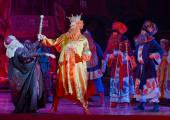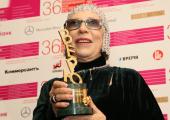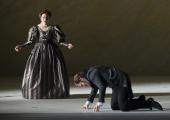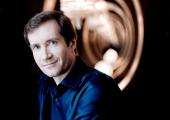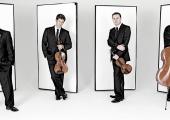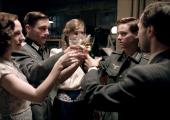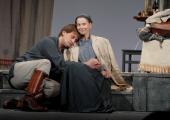The Queen of Spades, Grange Park Opera
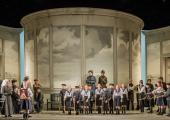
Tchaikovsky masterpiece revived in a production that listens to the music
For my money, The Queen of Spades is one of the great nineteenth-century operas, a masterpiece of dramma per musica. There will always be pure spirits who cry “vulgar” at late Tchaikovsky. But the charge is absurd. Anyone with ears can hear the brilliance and refinement of this music, and anyone with feelings can sense Tchaikovsky’s love of his characters, all of them: the frail, the mad, the villainous, the beautiful and the damned. What more can you ask?

